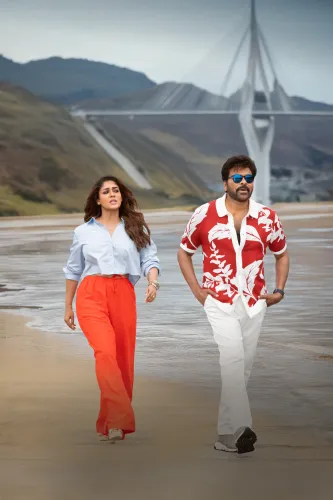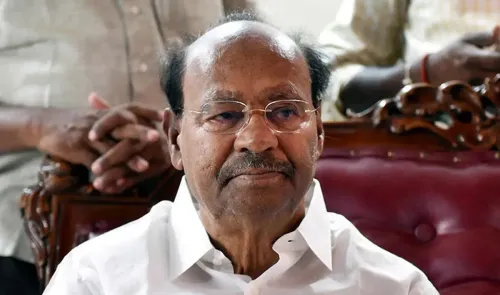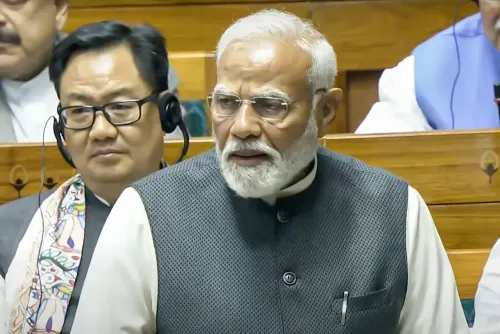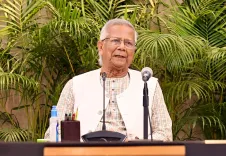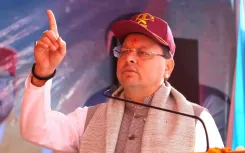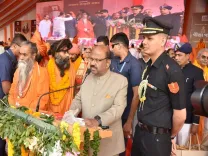Rahul Gandhi: Our Battle is Against the Indian State
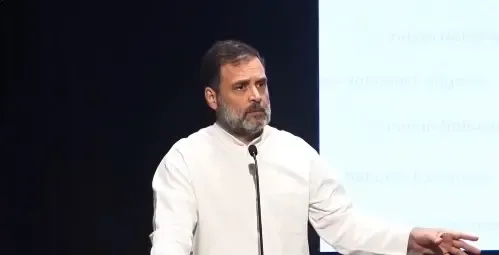
Synopsis
Key Takeaways
- Rahul Gandhi's critique of RSS's influence
- Congress's fight against the Indian state machinery
- Two conflicting visions for India: Constitution vs. RSS
- Concerns over Election Commission transparency
- Commitment to defending India's democratic essence
New Delhi, Jan 15 (NationPress) Congress leader Rahul Gandhi has launched a fierce critique of Rashtriya Swayamsevak Sangh chief Mohan Bhagwat, alleging that the BJP, RSS, and their affiliates are systematically seizing control of India's institutions. Gandhi asserted that the Congress party's struggle is no longer limited to political opponents but is against the very apparatus of the Indian state itself.
“Do not assume we are engaged in a fair battle. If you think this is simply against a political entity like the BJP or RSS, recognize that they have taken over almost every institution in our nation. We are now confronting the Indian state itself,” stated Rahul Gandhi, the Leader of Opposition in Lok Sabha, following the inauguration of the new Congress headquarters in the national capital on Wednesday.
Explaining the larger ideological conflict, Gandhi highlighted two opposing visions for India. "This represents the central struggle occurring in India. There are two conflicting ideas -- one embodies our vision, the vision of the Constitution; and the other represents the vision of the RSS. One concept articulates that India is a union of states -- we have all the scheduled languages represented in this Bhavan, equally placed together, without any superiority or inferiority among languages, cultures, or communities. This building symbolizes this diversity," he remarked.
In response to Bhagwat's assertion that genuine independence was only realized with the construction of the Ram Mandir, Gandhi stated, “Mohan Bhagwat has the audacity to inform us about his views on the Independence Movement and the nation. His comments yesterday are treasonous, as they imply that the Constitution is invalid and that the struggle against the British was illegitimate. In any other country, such statements would lead to arrest and prosecution. To claim that India did not achieve independence in 1947 is an affront to every Indian. It is time we cease listening to such absurdities.”
Reflecting on Congress' legacy and its role in shaping contemporary India, Gandhi mentioned, “This building serves as a testament to the Congress party’s influence on India’s essence. Within its walls, you’ll find the legacy of Mahatma Gandhi, Jawaharlal Nehru, Sardar Patel, and many others who dedicated themselves to the Constitution and honored the Tricolour. In contrast, those currently in power neither respect the Tricolour nor the Constitution. Their vision for India is one of control by a select few, silencing the voices of Dalits, minorities, tribal communities, and disadvantaged classes.”
Gandhi explored India's philosophical foundations. “Unlike the Western world, which emphasizes the external, the Indian perspective focuses on self-understanding. Our great thinkers emphasize understanding - precisely: where you come from, who you are, and your intrinsic nature. The Bhagavad Gita, Bhagwan Shiva, Guru Nanak ji, and Sant Kabir all address this.”
The Congress leader also expressed grave concerns regarding the Election Commission, highlighting discrepancies in the Maharashtra elections. "The unexpected emergence of nearly one crore new voters between the Lok Sabha and Vidhan Sabha elections is alarming. Why is the Election Commission withholding a transparent voters' list? What purpose does this secrecy serve? This lack of transparency undermines our democracy," he noted.
Gandhi concluded by reaffirming the Congress party’s determination. "We are the sole party prepared to confront and dismantle this agenda because we are an ideological party. This struggle involves defending the essence of India, and the Congress is devoted to that mission."



